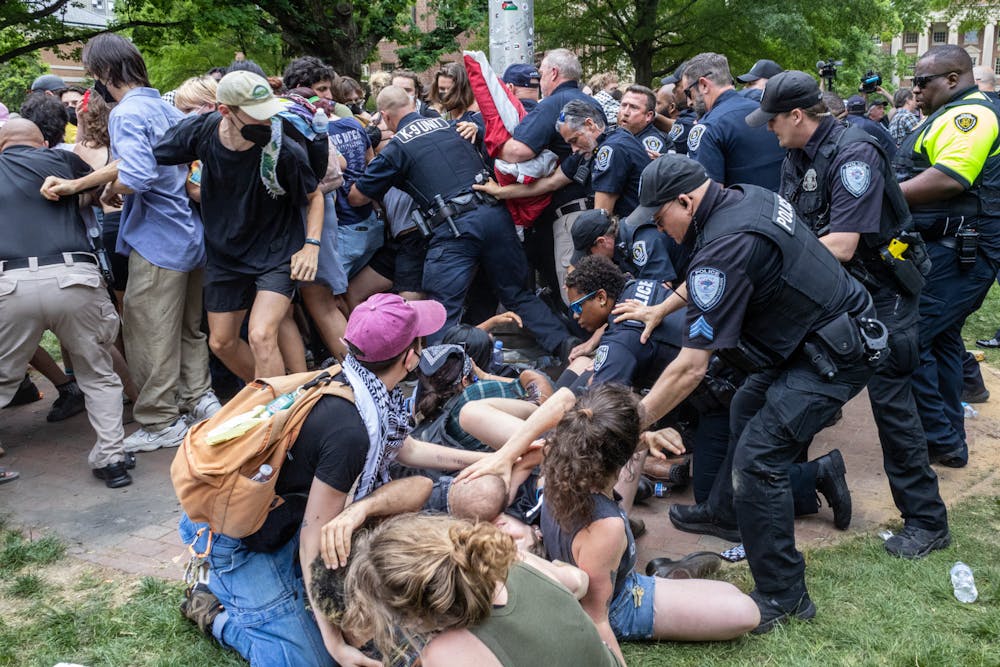For a total of five full days, students at UNC Chapel Hill joined many other universities, including Columbia University in New York City, by creating on-campus encampments to protest the Israel-Hamas war and connections to the Israeli government.
At roughly 6 a.m. authorities moved onto Polk Place to make arrests following a statement by UNC Interim Chancellor Lee Roberts and Provost Christopher Clemens calling for protesters to disband. According to The Daily Tar Heel, 30 protesters were arrested on April 30.
After the camp was cleared, further protests occurred to protest the administration’s response. The protest on April 30 began at Wilson Library, where protesters and members of UNC faculty against the war in Gaza marched to the South Building and made speeches.
The initial camp, which ran from April 26 to 30, was organized by the “Students for Justice in Palestine at the University of North Carolina” and included students from other universities — such as Duke University. This protest remained mostly peaceful.
Sam, a Chapel Hill alumni who studied at UNC in 1969 and declined to provide his last name, said he felt proud of the students protesting on Polk Place — likening it to a “church picnic” on April 29.
This is not to be mistaken with the protest that took place later on April 30, which led to more arrests, counter protests and physical aggression — as well as UNC Chapel Hill canceling classes for the day.
UNC Chapel Hill professor Elyse Crystall, who identifies as Jewish, said he believes that the UNC system needs to be more transparent about their financial connections with Israel.
“One of the demands that's important is we're asking the university to provide some transparency about where our money is going. We do not want to fund war and genocide,” Crystall said.
Later in the afternoon on April 30, protesters threw down barricades on the site of their former camp and occupied the grounds of Polk Place around the flagpole. They later brought the American flag down and replaced it with the flag of Palestine — causing at least one physical altercation with a counter protester. Some protesters also stomped on the American flag while it was on the ground.
Roberts, along with law enforcement, responded by marching from near Gerrard Hall to Polk Place and confronted the group of protesters at the flagpole. The Authorities removed the flag of Palestine and put the American flag back on the pole.
During this part of the protest, there was pushing from both the authorities and protesters. Protestors also threw water bottles toward Roberts and the authorities, which resulted in law enforcement’s use of pepper spray.
For Chapel Hill senior Max Pollack, the pro-Palestinian protests have caused fear around campus for some students over offensive rhetoric toward people who identify as Jewish.
“They've shouted calls for Intifada, which is a violent revolution against Jews, like it's been really tough to focus on homework here, just because they're very loud,” Pollack said. “I know a lot of people that have been afraid to come towards this part of campus and towards campus in general.”


